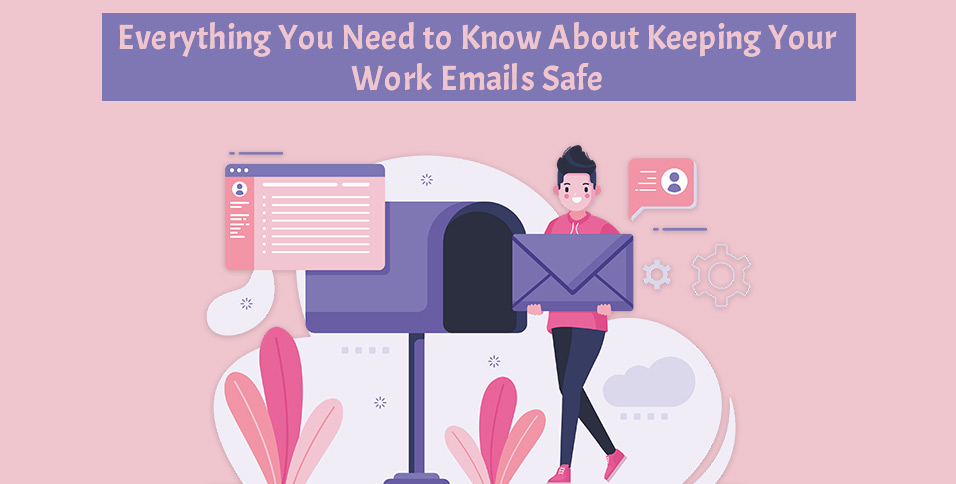Email is an important communication tool. However, it’s also a primary target for cybercriminals who want to steal sensitive information or disrupt operations. Ensuring the safety of your work emails is paramount. Here’s everything you need to know to keep your work emails secure.
1. Use Strong, Unique Passwords
The foundation of email security starts with a strong password. Make sure your email password is unique and not used for any other accounts. It should be a mixture of upper and lower case letters, numbers, and special characters. Avoid easily guessable passwords like “password123” or “admin.”
2. Enable Two-Factor Authentication (2FA)
Two-factor authentication gives you extra security. Even if a hacker manages to get hold of your password, they’ll need a second piece of information, usually a code that is sent to your phone or created by an authenticator app, to access your emails.
3. Be Wary of Phishing Scams
Phishing emails are intended to trick you to give your personal details away or click on malicious links. Look out for emails that have a sense of urgency, contain unexpected attachments, or ask for sensitive information. Always verify the sender’s email address and, when in doubt, get in touch with the sender through another method to confirm the email’s authenticity.
4. Regularly Update Software
Keeping your email client and any related software up to date is crucial. Software updates usually involve patches for security vulnerabilities that cybercriminals could exploit. Enable automatic updates whenever possible to ensure you’re always protected.
5. Use Email Encryption
Email encryption protects your messages by converting them into code that can only be viewed by the intended recipient. This is especially important for sensitive information. Many email services offer built-in encryption tools or support third-party encryption software.
6. Implement Company-Wide Security Policies
Organizations should establish comprehensive email security policies. These policies should include guidelines for creating strong passwords, recognizing phishing attempts, and reporting suspicious emails. Regular training sessions can help employees to stay aware and informed about the latest security threats.
7. Monitor Email Activity
Regularly monitoring email activity can help to detect unusual or unauthorized access. Many email services offer tools to view recent activity, including logins from unfamiliar locations or devices. Promptly address any suspicious activity by changing your password and notifying your IT department.
8. Backup Important Emails
Regularly backing up important emails ensures that you can recover critical information in case of a cyberattack or accidental deletion. Use secure backup solutions that encrypt your data and store it in multiple locations.
9. Be Cautious with Public Wi-Fi
Accessing work emails over public Wi-Fi networks can be a risk, as these networks are often unsecured. If you must check your email in a public place, use a virtual private network (VPN) to protect your internet connection and protect your data.
10. Secure Your Devices
Ensure that all devices you use to access your work email, including smartphones, tablets, and laptops, are secured with good passwords or biometric authentication. Get reputable antivirus software installed and keep it up to date.
Also Read: VPN for Safari: Enhancing Your Online Security and Privacy
















